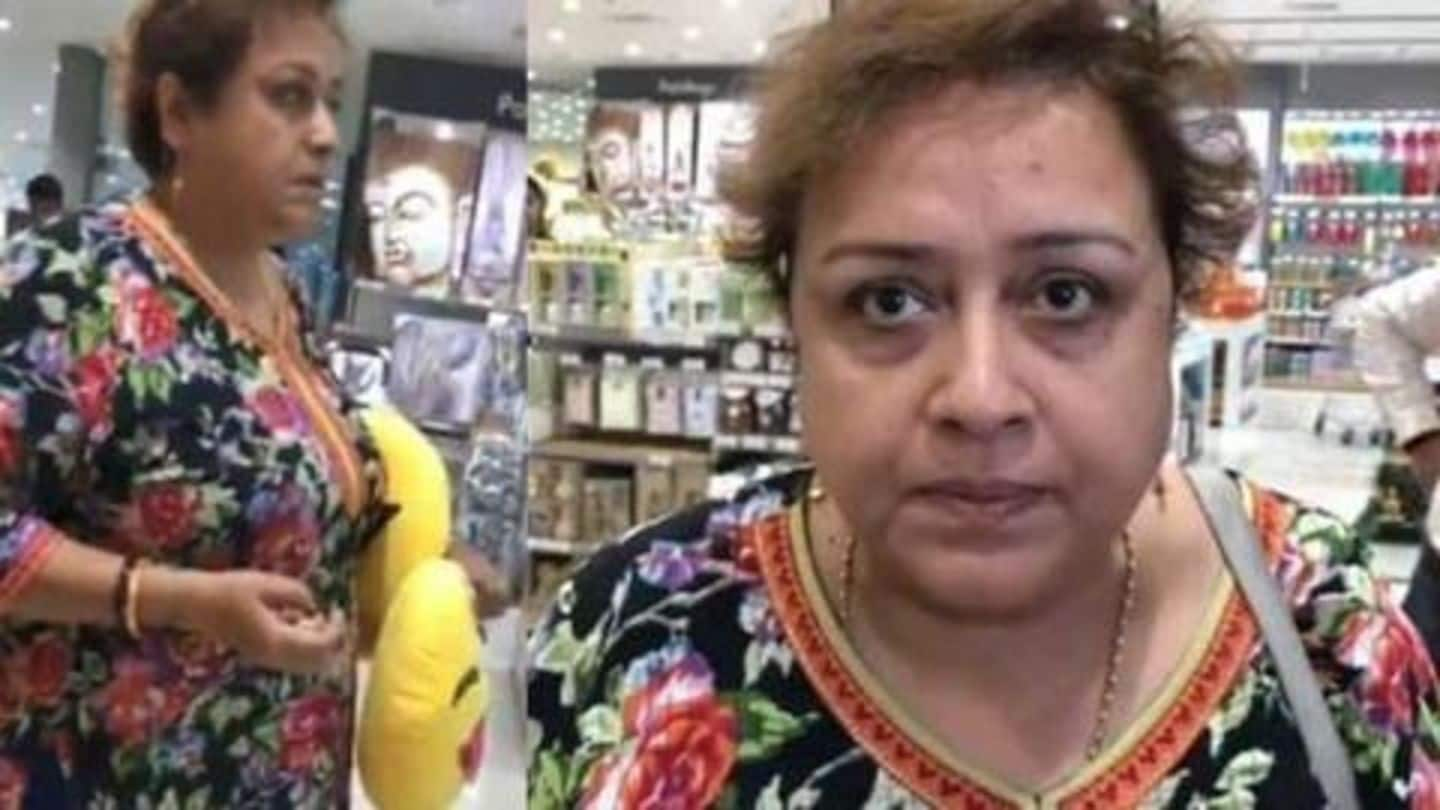
In the wake of #AuntyjiApologize, let's talk about call-out culture
What's the story
Last week, a video of a heated argument between a group of young women and a middle-aged woman went viral. The latter was heard making outrageous remarks, propagating rape culture. Ever since the video went viral, people debated over three chief observations: the obvious misogynist remarks, the ironically equally misogynist counter remarks, and if call-out culture has gone too far. Here's our observation.
Definition
What is call-out culture?
Call-out culture is the act of holding someone accountable for their misdeeds by public shaming. Although it's not limited to social media, online platforms do facilitate the process of spreading the word like wildfire, often leading to the person in question being boycotted or "canceled."
Details
What did the 'Aunty' do wrong?
Going by the account shared by one of the young women, Shivani Gupta, the incident occurred inside a Delhi-NCR mall, when the middle-aged woman, later identified as Soma Chakrabarty, commented on Gupta's short dress and asked seven men to rape Gupta and her friends as they "deserved it." A heated argument followed, where Chakrabarty was asked to apologize, but she refused.
Debate
What did Gupta and her friends do wrong?
A video was filmed and uploaded with the intention of shaming Chakrabarty into apologizing, but what followed were even more fierce debates. People questioned whether identifying Chakrabarty, who is yet another victim of patriarchy, and exposing her to a social media trial was the right call. Additionally, in the video, the young women are seen supporting body-shaming and rape threats against Chakrabarty.
Respone
How making the video viral was eventually counterproductive
The video almost immediately went viral as it was widely shared by several online activists, but has been deleted now. Chakrabarty was distastefully dubbed 'Aunty' and many people issued rape threats against her, age and fat-shamed her, tracked down her family and harassed her, and made memes on her. None of this served the purpose of defeating misogyny or rape culture.
Problems
After all this, did 'Aunty' even learn anything?
The false equivalence argument doesn't apply here. It's never okay to wish rape upon anybody. Anybody. You're only contributing to rape culture. Although Chakrabarty eventually apologized, can we certainly say she learned anything from this? Or did she apologize because she wanted the online mob to stop harassing her? The latter situation seems more likely, which begs the question, what did we achieve?
Re-evaluate
Wait, does this mean calling people out is wrong?
Nope! Call them out. But do consider if there's a better way to address it than in public. Be more compassionate and think about privilege. When people condemn Gupta and her friends, they mainly focus on what was said/done. Of course, some accuse them of being fame-hungry, but that hardly takes center stage. Chakrabarty, however, does not share their thin and young privilege.
Privilege
'Aunty' an easy target in the larger patriarchal manoeuvre
'Aunty' was shamed for her looks, her accent et al, none of which had anything to do with the problematic opinions she holds. Why? Because her lack of privilege makes her an easier target. Sure! There's bound to be creeps sliding into Gupta's and her friends' DMs as well, but that's sadly true of any young person presenting as female on social media.
Conclusion
Online mobs akin to real life mobs; ready to lynch
Although this specific incident wasn't approached correctly, it got a conversation going; one about how we all internalize misogyny. There's always space for addressing the wrongs that someone does. But we must consider that an online mob is much like one in real life: Unruly and ready to lynch. Also, when you fight rape-culture with more misogyny, the only people who win are rapists.